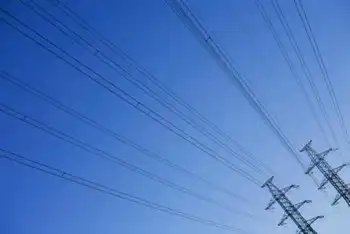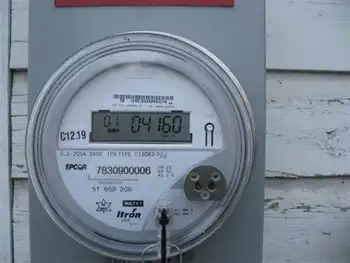Atlantic grids, forestry, coastlines need rethink in era of intense storms: experts

CSA Z463 Electrical Maintenance
Our customized live online or in‑person group training can be delivered to your staff at your location.

- Live Online
- 6 hours Instructor-led
- Group Training Available
Atlantic Canada Hurricane Resilience focuses on climate change adaptation: grid hardening, burying lines, coastline resiliency to sea-level rise, mixed forests, and aggressive tree trimming to reduce outages from hurricane-force winds and post-tropical storms.
Key Points
A strategy to harden grids, protect coasts, and manage forests to limit hurricane damage across Atlantic Canada.
✅ Grid hardening and selective undergrounding to cut outage risk.
✅ Coastal defenses: seawalls, dikes, and shoreline vegetation upgrades.
✅ Mixed forests and proactive tree trimming to reduce windfall damage.
In an era when storms with hurricane-force winds are expected to keep battering Atlantic Canada, experts say the region should make major changes to electrical grids, power utilities and shoreline defences and even the types of trees being planted.
Work continues today to reconnect customers after post-tropical storm Dorian knocked out power to 80 per cent of homes and businesses in Nova Scotia. By early afternoon there were 56,000 customers without electricity in the province, compared with 400,000 at the storm's peak on the weekend, a reminder that major outages can linger long after severe weather.
Recent scientific literature says 35 hurricanes -- not including post-tropical storms like Dorian -- have made landfall in the region since 1850, an average of one every five years that underscores the value of interprovincial connections like the Maritime Link for reliability.
Heavy rains and strong winds batter Shelburne, N.S. on Saturday, Sept. 7, 2019 as Hurricane Dorian approaches, making storm safety practices crucial for residents. (Suzette Belliveau/ CTV Atlantic)
Anthony Taylor, a forest ecologist scientist with Natural Resources Canada, wrote in a recent peer-reviewed paper that climate change is expected to increase the frequency of severe hurricanes.
He says promoting more mixed forests with hardwoods would reduce the rate of destruction caused by the storms.
Erni Wiebe, former director of distribution at Manitoba Hydro, says the storms should cause Atlantic utilities to rethink their view that burying lines is too expensive and to contemplate other long-term solutions such as the Maritime Link that enhance grid resilience.
Blair Feltmate, head of the Intact Centre on Climate Change at the University of Waterloo, says Atlantic Canada should also develop standards for coastline resiliency due to predictions of rising sea levels combining with the storms, while considering how delivery rate changes influence funding timelines.
He says that would mean a more rapid refurbishing of sea walls and dike systems, along with more shoreline vegetation.
Feltmate also calls for an aggressive tree-trimming program to limit power outages that he says "will otherwise continue to plague the Maritimes," while addressing risks like copper theft through better security.











